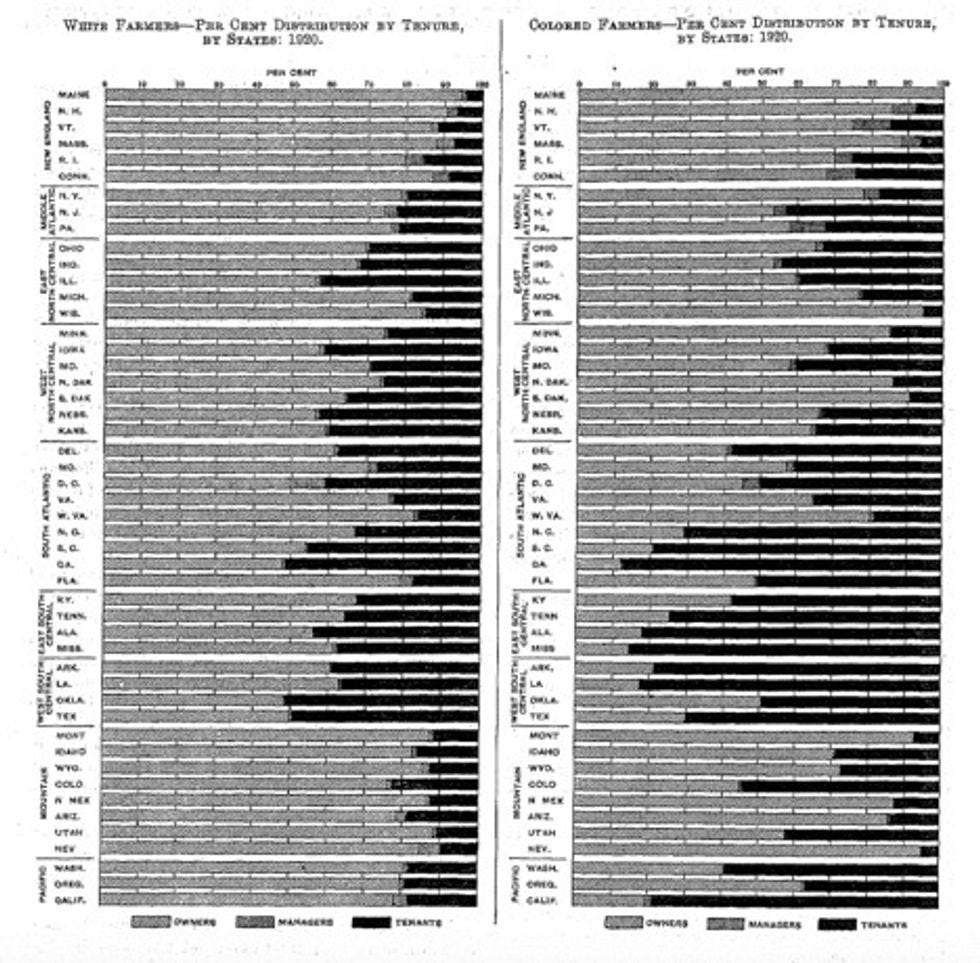Hi there! I'm a crop scientist who got their start in dirty farm jobs. Today I want to treat you to a New York Times article that I like to call "Tenant Farming (But Make It Fashion)." The NYT real estate staff thought the right person to do an article about farming — tenant farming, even, which is let us say a sensitive topic — was an architecture, design, and style writer. Because what is more important, in agricultural economies, than aesthetics?
At first I thought this was a horrible mistake. But on further reflection, I have to look at this as a stroke of naïve genius. It's Just The Right Kind of Wrong. That's because, as a writer who covers home renovations, reporter Tim McKeough diligently lists improvements, property values, and how much money is changing hands for rent. He's straight with us, which someone with an agricultural upraising couldn't be — farm kids grow up thinking they know farming, but they don't know the finances. They do know that talking about money is Just Not Done — a taboo designed to hide wealth. Period. Having a design reporter write on this lovely little slice of upstate New York pastoralism lets us, gentle readers, get a good look at how hard the couple in this article is screwing the farmers they're "sharing" the property with. A farm columnist would never make that mistake! I owe this man everything. Let's get into it.
This article features a lovely couple who built their dream home in the Hudson Valley. But they also wanted a sustainable farm on their 7-acre property. So they partnered with a nice young couple to make that happen. This nice young couple didn't just plant crops, no. They installed a well. They built on-site cold storage for the crops. They built greenhouses. They installed fences. They cleared several acres of brush. They made the place generally pretty — a job normal people might pay a landscaper for. Dear reader, these homeowners didn't pay the farmers to do any of it. They didn't even foot the bill for these upgrades on their own property. The farmers did! They did all the work, emptied out their savings, and went into debt. My rough estimate is this young farmer couple has contributed at least 1/3 to 1/2 of the value of this property — and as far as the article indicates, they own none of the equity.
Are you ready for the cherry on this sharecropping sundae? This nice young couple didn't just drop hundreds of thousands of dollars of sweat equity and personal savings on this property. They're paying rent to live there. And the landowners in the big house honest-to-God think they're doing this nice young couple a favor .
Now, as a Southern crop scientist, when I see a farm with a big house and a little house I think "Ah! That's some classic Jim Crow bullshit!" But the sturdy folk of upstate New York seem to have no such qualms. They really should. Did you know that in the Hudson Valley, feudalism was legal until 1845? Farm tenants in the Hudson Valley didn't just have to pay rent to stay on the lord's land. They had to pay to leave . Good times, right? It finally ended because there was an actual, honest-to-God peasant uprising. It's called the Anti-Rent War! You should check it out sometime! It could add some useful historical perspective to reporting on adorable little cottage farms! In fact, tenant farming and sharecropping were a coast-to-coast American institution until well after the second World War. In 1920, nearly half the "family farmers" in Iowa, Illinois, Nebraska, Kansas, and Oklahoma were actually sharecroppers and tenant farmers.

http: //usda.mannlib.cornell.edu/usda/AgCensusImages/1920/Farm_Statistics_By_Color_and_Tenure.pdf
That's why "the countryside used to be radical" and it's not anymore. The ol' story about how agribusiness "forced family farmers to get bigger and force each other out" is a biiiiiit of a fabrication. What really happened is more like "owners replaced their workers with machines." Turns out rural and inner-city decline are the same goddamn problem. Urban-rural divide my ass, amirite?
Boy, we have really wandered off the "remixed and romanticized tenant farming for the modern day" beat. Or have we? Here, have a picture of an Iowa tenant farmer moving his shack-on-wheels off his farm after being evicted in 1936. This was a precursor to the modern mobile home! We should definitely talk about tiny houses next.

http: //photogrammar.yale.edu/records/index.php?record=fsa1997021314/PP
[ NYT ]
Wonkette is ad-free and funded ENTIRELY by YOU! Will you pay us money to find more fabulous writers? You WILL? We love you.




Another form of sharecropping is "contract farming," used extensively for chickens and hogs. The processor who will buy the animals insists on a contract with the farmers that specifies exactly how the animals are to be fed and treated, and what kinds of improvements the farmers have to make (at their own expense) to make that possible. It never adds up and the farmers are always in debt. It's a marriage of old and new: the gig economy and old-fashioned serfdom.
Remember when Princess Ivanka had all those helpful tips for making ends meet when you're an intern in your twenties? I don[t think that was the times, but same bullshit./